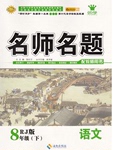题目内容
This year’s children’s party, ________ some parents were invited to, was a great success.
A. whichB. whyC. whoseD. where
练习册系列答案
 优学名师名题系列答案
优学名师名题系列答案
相关题目
题目内容
This year’s children’s party, ________ some parents were invited to, was a great success.
A. whichB. whyC. whoseD. where
 优学名师名题系列答案
优学名师名题系列答案